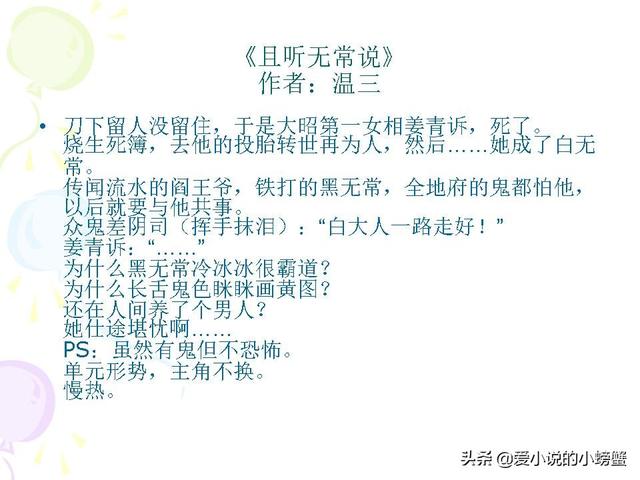这些简单的词你念错了多少年(这些听起来几乎一样的词)
Hey what's up, Stefanie the English coach here from EnglishFullTime. com. In this video we are going to be talking about words that sound very similar in English.,我来为大家科普一下关于这些简单的词你念错了多少年?下面希望有你要的答案,我们一起来看看吧!

这些简单的词你念错了多少年
Hey what's up, Stefanie the English coach here from EnglishFullTime. com. In this video we are going to be talking about words that sound very similar in English.
大家好,我是EnglishFullTime.com的Stefanie。这期视频我们来讲一下英语中发音非常相似的单词。
But these words don't sound similar to native English speakers. In fact, to native English speakers these words sound nothing alike.
这些单词对于母语者来说听起来并不相同。对于他们来说,这些单词毫无相近之处。
They're completely different. But when you are learning English and you are dealing with sounds that don't exist in your native language, some of these words might sound almost identical to each other, ok?
他们是完全不同的。但是你在学英语的时候,你面对的是自己母语里面完全不存在的一些发音,所以有些单词对你来说听起来可能就完全一样。
So I'm gonna go through a list of words that you guys helped me create, that's right, I didn't invent this list myself, I did not find it on Google, this comes from the feedback that you guys have been leaving on my YouTube videos. So thank you so much I love the feedback that you leave, because it helps me know what to teach in my videos.
所以今天我就来讲一讲大家反馈给我的这些词汇,没错,这些词并不是我自己找出来的,不是Google上搜出来的,而是通过大家的留言收集起来的。非常感谢大家能够给我留言,因为这样才让我知道我更应该讲哪些内容。
Anyhow, so let's just get into it. The first pair that we have is MEN and MAN.
那我们就来看一下吧。首先是MEN和MAN。
Men man, many men, one man, men man en en an an. Next we have WANT and WON, like I want a car or I won a car.
Men man, many men, one man, men man en en an an.接下来是,WANT和WON,我“想要”一台车/我“赢得”了一台车。
Now the reason why these two sound so similar is because when they are said quickly, they actually do sound exactly the same. Listen, I really want a car, I won a car, right?
这两个单词听起来很相近的一个重要原因就在于,说快了这两个确实特别像。"I really want a car", "I won a car".
When we say them quickly in fast speech, they're said the same way "I wan a car." Right? But when you pronounce these words individually, one is WANT with the T at the end, and the other is WON with the N at the end.
说得很快的时候,感觉就完全一样了。但是如果你分开说,其中一个是T结尾的WANT,另外一个是N结尾的WON。
However, when we do pronounce WANT, we rarely pronounce it with the T at the end, usually we cut it off and we say WAN, I wan' that and the other word is WON. So the difference is wan' and won, wan' and won.
不过我们在说want的时候,很少会把结尾的t发音,通常我们都会省略结尾的t,直接说WAN,另外一个单词是WON。区别就在这里,wan和won。
Now the next pair of words is ONE, like the number one, and also WON. One, Won.
下面的一组是one和won。One, won.
Now one of the reasons why these words get confused so much is because a lot of people actually say won like "Yeah, I won a car!" So they pronounce it exactly like the number one and maybe that's why you've been confused.
这两个单词很容易让人迷惑是因为很多人会说"Yeah, I won a car!"这样的话。他们的发音跟one完全一样,所以你才分不清。
I do not however, I would say "I won it", I don't say "I won it".But a lot of people do, so that's another reason why they sound exactly the same. Sometimes because they do they are the same, depending on how people pronounce them.
我并不会这么发音,我的发音是"I won it"。但是很多人的发音都是这样,这也取决人们怎么发音。
Next HAIR and AIR. Do you see how I'm taking a breath in and then I'm releasing it to say hair, hair, hair, right?
下一组是HARI和AIR。你注意到我在读hair的时候是怎样先吸一口气了吗?
Because you do have to release that breath of air, that's the H sound, right? Hair. The word air, on the other hand, I just start right away with the word, air, "The air was blowing through her hair."
因为在发H这个音的时候,你要呼气,Hair。而另外一个单词air则直接开始就好了,"The air was blowing through her hair."
"The air was blowing through her hair." Hopefully you can hear the difference there.
"The air was blowing through her hair."希望你能听出来其中的区别。
Next TREE, three, free. This set of words is one that you guys have told me that you struggle with the difference is what comes at the beginning of the word.
接下来是TREE/THREE/FREE。这组词的问题在于很多人发不好这三个单词开始的发音。
So tree, we have a strong CH sound there, tree tree tree. Then we have three three three, ok?
Tree有一个很强的ch音。然后是Three。
So the tongue does go between the teeth, you do not have to exaggerate this and say thhree like that, ok? Three three three. My tongue is like right between my teeth, right behind my teeth and it's just there quickly and then I pull it back, three, for the r, three.
需要把舌尖放到牙齿之间,不需要太夸张。我就把舌尖放到牙齿之间,放到牙的后面,然后很快就收回去,three。
Then we have free free, ok? Free. That is the F sound, my vocal cords do not vibrate, I'm just releasing the air blowing it out, and my teeth are right here on my bottom lip.
最后一个是free。发F音的时候,我的声带并不震动,只是简单地发音,牙齿轻轻咬下唇。
And notice the top lip is relaxed, free, free, OK? So, tree, three, free.
上唇是完全放松的,free。Tree/three/free。
Try saying that fast a few times, it's a real tongue-twister.Next, LOOSE, LOSE.
多练几次,这个确实有点拗口。接下来是Loose/lose。
Loose, lose, OK? Your shoe laces are loose. Did you lose the ball?
Loose/lose。Your shoe laces are loose. Did you lose the ball?
Your shoe laces are loose. Did you lose the ball? What's the difference here?
Your shoe laces are loose. Did you lose the ball?能听出区别来吗?
There are two main differences, one is that the vowel is elongated. We have the same vowel in both words, but one is longer than the other, listen.
主要有两个区别,一个是元音拉长。两个单词的元音是一样的,但是其中一个要比另外一个长,听听看。
Loose, lose, loose, lose. OK? The other difference is the ending loose, has the S sound, loose.
Loose, lose, loose, lose.另外一个区别在于结尾音,loose的结尾音是s。
Then we have lose, lose, that's the Z sound. Next we have PROVE and PROOF.
而Lose的结尾音是z。接下来是PROVE和PROOF。
Prove and proof, OK? Can you prove that?
Can you prove that?He wants proof.
He wants proof. So here we have some very similar differences, the vowel sound, right?
这个区别跟之前那个很像,也是元音的区别。Prove,这个元音更长。
Prove, that's longer. You are saying it for a longer length of time.
拖得时间要长一点。而proof要更快。
And the proof is a lot faster, proof. Prove, proof, OK?
Prove, proof.另外一个区别在于结尾,prove以v结尾,而proof则以f结尾。
And then the other difference is the ending, prove has the V ending, proof has the F. So the way these sounds are made is almost exactly the same, the tongue the teeth the lips, they are all in the same position.
发这两个音的方式完全相同,牙齿抵下唇,位置是一样的。唯一的区别就在于声带的振动。
The only real difference is the vibration of the vocal cords. With the V sound, your vocal cords vibrate, with the F sound, they don't.
V这个音是需要声带振动的,而F这个音不需要。下一组,LEAF/LEAVE。
Next, LEAF and LEAVE. Leaf and leave.
区别还是一样的。
Again we have the same differences here as we've been having in the previous set of words. Leaf, the E sound is very fast, leaf.
Leaf,E的音非常快。而leave中,e的音要更长一些。
And then in leave, the E sound is longer, leave. That's a beautiful leaf.
That's a beautiful leaf.He wants to leave.
He wants to leave. OK, and the other difference is the ending Again we have the V versus the F, leave, leaf.
另外一个区别也在于V和F之间的差别,leave,leaf。区别在于year开头的这个Y。
Next YEAR and EAR. The difference here is just the Y sound at the beginning of year.
It's gonna be a great year.Ow, my ear hurts.
It's gonna be a great year. Ow, my ear hurts.
Ear, year.你应该能听出来year开头的这个音。
Ear, year, OK? So you should be able to hear that sound at the beginning of year.
如果你能听出来的话,就能进一步练习,然后正确地发音。下一组是word/world。
Now if you can hear the sound then you can practice making it and saying the words correctly. Next WORD and WORLD.
我知道这两个单词可能比较难,所以要多多练习。Word word word.
Word and world. I know these two words are very difficult for many of you, so lets practice this.
注意单词词尾d这个发音,我在另外一个视频里面讲过,你可以不发这个d,变成wor' wor' wor'。That's a really long wor'.
Word word word. Now notice I am pronouncing the D at the end, but I talk about this in another pronunciation video that I've done, you can stop the word at the D sound, wor' wor' wor'.
dang'ran当然也可以说"that's a really long word"。通常在句子结尾我都会省略这个d,world也是一样,
That's a really long wor'. Or I can say "that's a really long word".
不用非要说world,可以直接说worl'。This is a crazy worl'.
OK, but usually if it's at the end of a sentence, I might just cut off the D sound same with world. I don't have to say world, I can say worl'.
现在你搞清楚我是怎么做省略的了吗?还有一件事我要提醒一下,那就是d这个音如果后面有连着音,那么就不能省略。
This is a crazy worl'. Do you see how I'm stopping the word at that D sound?
That word is really big.That wordis, wordis, wor-dis, wordis.
Now one thing I should mention though is that sometimes the D sound would get attached to whatever comes after it like this. That word is really big.
That word is really big.有一个小技巧,你可以把world这个单词看做"were"和"old"两个单词。
That wordis, wordis, wor-dis, wordis. That word is really big.
Were-old,这是评论里面有人提到的。我觉得很有意思,就分享给大家。
Now one quick tip for pronouncing "world", you can also think of it as two separate words "were: , like the word "were", and then "old" like that man is "old". Were-old, that's actually a trick that someone commented on my last pronunciation video.
如果你把它看成两个单词,那可能就能帮助你更规范地发音了。接下来是SHIP和SHEEP。
I thought it was pretty cool, so I wanted to share it with you guys here, so were-old, world. If you think about it like two separate words that might help.
我做这个手势是因为你应该能听出来,这两个单词的音调一个要比另一个高一点。这个音要更高,而且在嘴巴的位置更靠前。
Next we have SHIP and SHEEP. Ship Sheep. And I'm going like this because you should be able to hear that one sound is higher than the other, OK?
发元音的时候每个音的位置都会运用到不同的部位。有的音更靠后,有的音更靠前,还有的可能更靠近鼻腔,这都取决于我们说的语言。
This sound is a bit higher and it's placed more forward in the mouth. All of the vowel sounds that we make are made in different places of our face, our vocal apparatus, OK?
有的语言可能比其它语言鼻腔发音更多。我用夸张的方式来发这个音,看一下我的嘴巴是要咧开的。
Some sounds are made more in the back, some are made more in the front, some are made maybe more on the nose, depending on what language we are speaking, OK? Some languages have more nasal sounds than others.
但是我说sheep这个词的时候就没有完全咧开,如果这样的话就会很奇怪,所以我就只会这么说,sheep。你们要学会不那么夸张的发这个音。
So the sound when I'm exaggerating it, look how my mouth just widens like this. However, when I'm saying sheep, I'm not going sheep like that, that's totally awkward, I'm just saying sheep, sheep.
我这么做是为了告诉你这个音的位置在哪里。Sheep sheep ship ship.
So you should be able to make that sound without exaggerating and going like that. But doing that sort of shows you were the sound is placed in your mouth OK?
如果你能听出来明显的区别,那就有助于你正确发音。首先要能听出差别在哪,然后才能充分利用自己的发音,然后多多练习,直到练成标准发音。
Anyhow, sheep sheep ship ship, OK? Again, if you can hear a clear difference, that is gonna help you pronounce them correctly.
接下来是SICK和SEEK。He's really sick.
You have to hear the difference first, and then you have to play with your voice and practice until you can say it the way I'm saying it. Next we have SICK and SEEK.
She wants to seek a new job.同样,你也没必要发K这个音,可以直接说"he's really sic'"。
He's really sick. She wants to seek a new job.
但是后面如果跟着一个音,比如"She wants to seek a new job",就会变成"seeka","She wants to seeka new job"。下面是PILL/PEEL。
And again you don't necessarily have to pronounce that K sound at the end, you can say "he's really sic'." "He's really sic'." And likewise with the other examples I gave of words connecting to whatever comes after it, when I say "She wants to seek a new job", I'm saying "seeka", "seeka", "She wants to seeka new job."
Every morning he has to take his pill.Peel the orange before eating it.
Next PILL, PEEL. Every morning he has to take his pill.
Pill, peel.TAX/TASK.
Peel the orange before eating it. Pill, peel.
这一组的结尾是反过来的。一个是KS音,tax,另外一组是SK音,task。
Next, TAX, TASK. Tax, task. The ending is inverted.
You'll have to pay tax with that item.Don't worry, it's an easy task.
One has the KS sound, tax, and the other has the SK sound, task. You'll have to pay tax with that item.
BEER/BEARD.He spilled beer in his beard.
Don't worry, it's an easy task. Next, BEER, BEARD.
我在这里也把D给省略了,我不会说Beard。我们经常会省略词尾,特别是辅音词尾。
He spilled beer in his beard. OK I am cutting off the D here of beard, cuz I don't really say beard.
在喉咙部位停住就可以了。Beer/Beard.
But again, in English we tend to cut off lots of sounds at the end of words, specially consonant sounds, OK? Where you can just stop the sound in your throat.
Pepper/paper.She puts pepper on her eggs.
Anyhow, beer beard, beer beard. Next, PEPPER PAPER.
He wrote it down on a piece of paper.好了,接下来要讲的几个单词可能儿童不宜,所以如果你周围有孩子,就让他们到一边去,或者静音视频,免得他们听到。
She puts pepper on her eggs. He wrote it down on a piece of paper.
jie'xia接下来的单词是骂人的话。第一个是Bitch/beach。
OK and this video would not be complete without a couple examples of profanity, so if you have children around please send them away or mute this video or do something if you don't want them to hear this. Because the next couple words we are gonna talk about are swear words.
如果你仔细听的话,你会发现这两个单词里面还有单词。Itch,就是"my leg itches"的那个itch。
Here we go. B*TCH BEACH. Now if you listen closely, there is actually real words inside this words.
Each,是"each person is different"的那个each。Bitch/beach。
Itch, itch, like "my leg itches". Each, "each person is different", each.
发音要注意。你需要练一下这几个单词,特别是你想用的时候,因为你可不能说"oh, she is such a mean beach."沙滩很美好的,一点都不尖酸刻薄,不能拿来骂人。
Bitch, beach, ok? So again, we have. . .
所以beach/bitch。
You do wanna practice these words, specially if these are words that you use cuz you don't wanna say "oh, she is such a mean beach", because beaches aren't mean they are really nice. So beach beach and b*tch b*tch b*tch.
She washed the sheets for her bed.
Next, SH*T SHEET. He just step in a big pile of sh*t.
我把最好的一个留到最后,也是我最喜欢的一个。
She washed the sheets for her bed. Sheet, sh*t.
He wants to kiss her.She lost her keys.
And last I saved the best example for last, or at least this was my favorite. KISS and KEYS.
He wants to kiss her.She lost her keys.
Like he wants to kiss her. She lost her keys.
我觉得这个发音正确很重要,因为你可不能对别人说"Hey, can I keys you"这种话。而要说的是"Can I kiss you?"不是Keys。
He wants to kiss her. She lost her keys.
Kiss, keys.好了,这就是今天的全部内容,感谢收看。
Now this I thought it was a very important example to go over because you don't wanna say to someone "hey can I keys you" ok? You wanna say "hey can I kiss you? Can I kiss you?" not "keys", OK?
希望你能有所收获。请留言告诉我哪一组比较简单、哪一组比较难,这个视频有没有帮助你纠正发音,有没有以前不会现在会了的。
Kiss, keys. Alright you guys, that's it, thank you so much for watching this video.
一定要让我知道,我很喜欢读大家的回复。如果你刚刚关注这个频道,我想告诉你的是,提高英语的最佳方式就是跟母语者进行交流。
I hope you learned something. Please let me know in the comments which words pairs were easy for you, which ones were difficult, did this video help you with any of them, are you able to pronounce them correctly now.
这会激发你的自信心,提升流利程度。我在这里留了一个指引,可以免费下载,它会指导你如何跟英语母语使用者锻炼自己的口语。
Please let me know, I love reading your feedback. And if you are new to this channel, I just wanna let you know that the number one way I promote improving your English is by practicing by speaking English with real people.
我几乎每次视频都会提到,因为它确实帮到了很多人,我相信也会帮到你。我把它放到评论里面,随意下载。
That is the one thing that can help take you form where you are to where you want to be, to help improve your fluency, your confidence, etc. So I wrote a guide, is on my website it's totally free you can download it, it's about how to practice your English with native English speakers.
这个读起来很嘉倪丹,也会教给你使用技巧,立刻就能用到。好了,下次见。拜拜。
I pretty much mention this guide in almost every video, because it has helped thousands of people, I really believe it can help you too. So I would go ahead and link that in the description, feel free to download it.
It's an easy read, it's really quick to get through, but it's gonna teach you strategies that you can start using today. Alright guys, that's it. I'll see you in the next video.
,免责声明:本文仅代表文章作者的个人观点,与本站无关。其原创性、真实性以及文中陈述文字和内容未经本站证实,对本文以及其中全部或者部分内容文字的真实性、完整性和原创性本站不作任何保证或承诺,请读者仅作参考,并自行核实相关内容。文章投诉邮箱:anhduc.ph@yahoo.com






